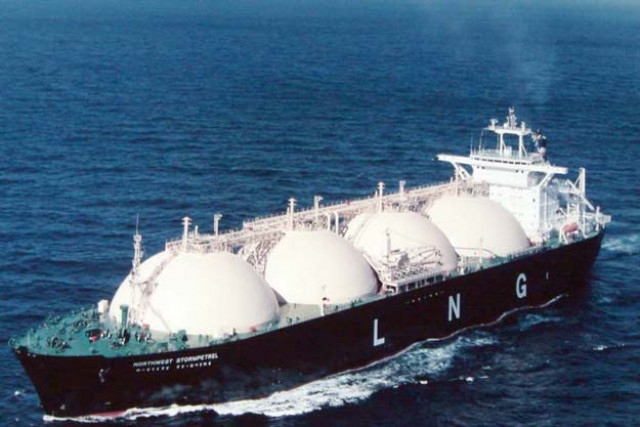LNG import opposed: Sindh asks centre to consume local gas deposits first
Cites huge energy resources, particularly low BTU gas, in the province.

The province has forcefully called for utilising the untapped domestic gas reserves first in order to ease the shortage before going for LNG purchase from overseas markets. PHOTO: AFP
The province has forcefully called for utilising the untapped domestic gas reserves first in order to ease the shortage before going for LNG purchase from overseas markets.
It expressed the concern just weeks before the first LNG shipment is due later this month.
According to provincial authorities, Sindh has huge energy resources, including low British thermal unit (BTU) gas, which could immediately bridge the shortfall up to 80%, especially in power production.
“It only requires a reasonable tariff for the low BTU gas in order to attract vital investment in exploration work,” said an official while seeking anonymity.
The federal government is willing to offer $4 per million British thermal units (mmbtu) for the low BTU gas, whereas the flat rate for LNG import would be around $14.
At present, the LNG import cost has dropped to $7 due to reduction in international prices. Sindh is willing to agree on a tariff rate of around $7-8, which it believes will be good enough to attract investors.
Officials suggest that it could be wiser to utilise domestic reserves, which will not only guarantee continuous availability of energy and prove cost-efficient, but will also bring investment in the oil and gas sector.
“After the 18th Amendment to the constitution, provinces have the right to explore all energy resources, including LNG import, as per Article 154. But it is not wise to import gas when ample local reserves are available,” an official added.
Qatar will supply 200 million cubic feet of LNG per day (mmcfd) by the end of this month. The government intends to provide this gas to the power plants in Punjab in a bid to ease the energy shortage.
The plunge in the international crude market will help in bringing down the power generation cost up to 40% at current LNG import prices compared to furnace oil.
Next year LNG supply will be doubled and compressed natural gas (CNG) stations of Punjab, which are facing acute shortages, will be given a reasonable share.
The low BTU gas needs separate supply pipelines since it cannot be mixed with natural gas that is currently being used. The imported LNG, however, only requires re-gasification before being injected into the system of Sui Northern Gas Pipelines Limited.
Published in The Express Tribune, March 18th, 2015.
Like Business on Facebook, follow @TribuneBiz on Twitter to stay informed and join in the conversation.



















COMMENTS
Comments are moderated and generally will be posted if they are on-topic and not abusive.
For more information, please see our Comments FAQ